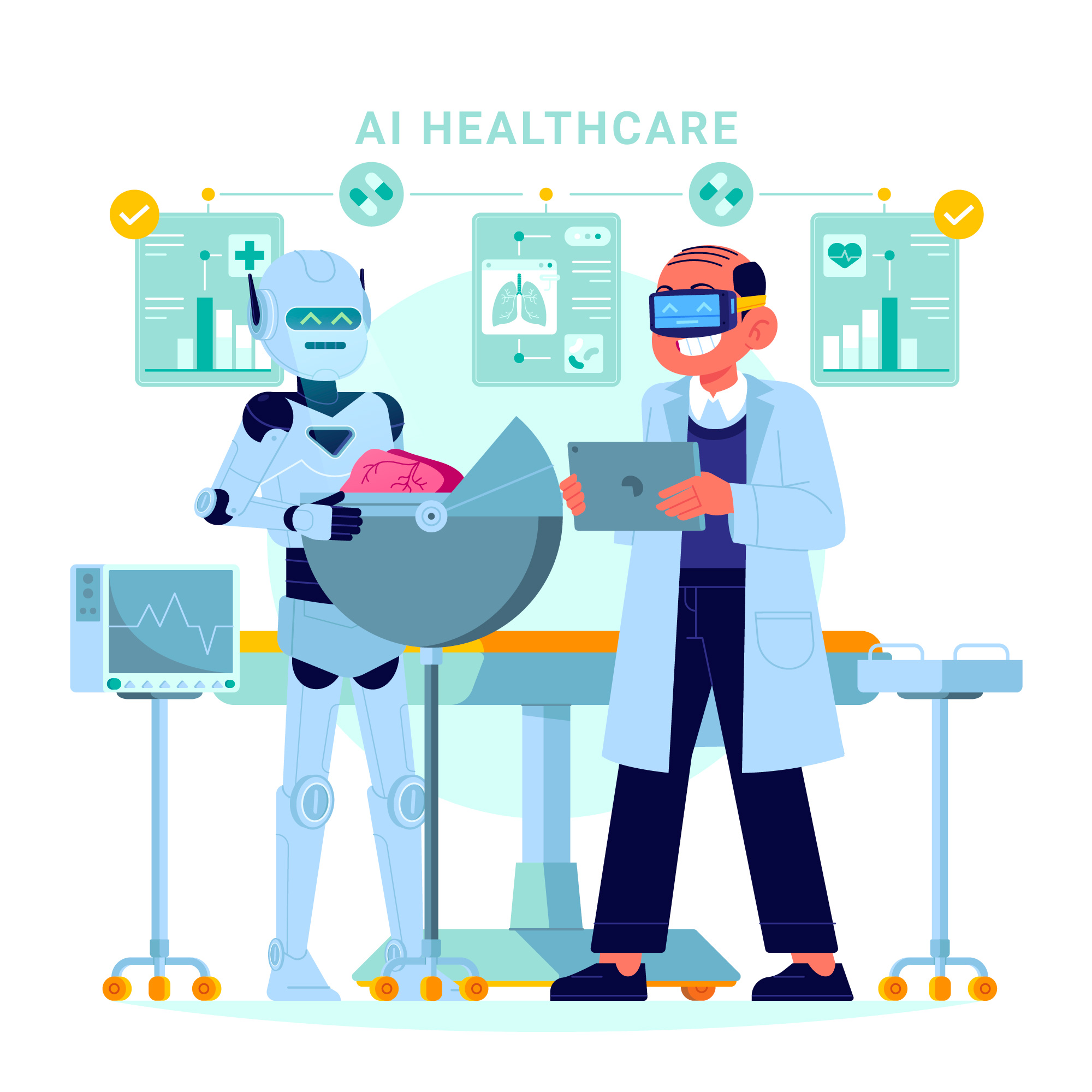Engineering Responsible AI in Healthcare: Ethics, Bias & Explainability

Artificial Intelligence (AI) is revolutionizing nearly every aspect of modern healthcare—from diagnostics and personalized treatment to operational efficiencies and patient engagement. But as healthtech AI becomes more deeply embedded into care delivery, a critical question arises: Can we trust AI in healthcare to make decisions that are fair, transparent, and ethical?
Building responsible AI systems in healthcare isn’t just about advanced algorithms or data—it’s about embedding ethical thinking into the very code, architecture, and lifecycle of these systems. In this blog, we explore the importance of responsible AI in healthtech, and how ethical engineering can address issues like bias, explainability, and accountability in healthcare.
What Is Responsible AI in Healthcare?
Responsible AI refers to the practice of designing, developing, and deploying AI systems that align with human values and societal needs. In the context of healthcare, it means ensuring that AI systems:
Treat all patient groups fairly (eliminating bias)
Can be explained and interpreted by clinicians (explainability)
Are transparent and auditable (accountability)
Comply with health data privacy laws (compliance)
In short, responsible AI in healthcare is about ensuring that intelligent systems help people without harming them.
The Risks of Irresponsible AI in Healthcare
While healthtech AI holds enormous promise, it also comes with serious risks when not engineered responsibly:
Bias in Diagnosis: AI models trained on non-representative datasets can deliver inaccurate diagnoses for underrepresented groups. For instance, a skin cancer detection AI trained mostly on images of light skin may fail to detect symptoms in darker-skinned patients.
Lack of Explainability: Clinicians often hesitate to adopt AI tools that act as “black boxes” and provide no rationale for decisions. If a model recommends denying a treatment, doctors and patients need to know why.
Data Privacy Concerns: AI systems rely on massive amounts of patient data. Without strong governance and privacy controls, this data can be misused or exposed in breaches.
Loss of Accountability: When AI systems make mistakes, who is responsible? If accountability isn't clearly defined in AI deployment, trust in healthcare technology can erode.
Key Pillars of Responsible Healthtech AI Engineering
To build trust and ensure safety, healthtech companies must integrate responsibility into every phase of the AI lifecycle—from design to deployment.
1. Ethical Design and Development
Ethical thinking should start at the whiteboard—not the testing phase. This involves:
Conducting impact assessments during ideation
Consulting with stakeholders (doctors, patients, regulators, ethicists)
Defining use cases and edge cases clearly
Considering the social impact of incorrect predictions or biased outputs
By identifying ethical challenges early, development teams can engineer safeguards and avoid costly redesigns or public backlash.
2. Bias Detection and Mitigation
Bias in healthcare AI doesn’t always come from malice—it often stems from incomplete or imbalanced data. But the effects can be devastating.
How to engineer bias-resistant AI:
Use diverse datasets that reflect the population’s race, gender, age, and medical history.
Apply fairness metrics like demographic parity, equal opportunity, and disparate impact.
Regularly audit model predictions for disparities.
Involve domain experts to review assumptions embedded in the algorithms.
3. Explainability and Transparency
Clinicians and patients need to understand and trust AI outputs. That’s where explainable AI (XAI) becomes essential.
Techniques to enable explainability in healthtech AI:
Use interpretable models (e.g., decision trees, logistic regression) for sensitive applications.
Apply tools like SHAP and LIME to explain complex deep learning outputs.
Present explanations in simple, visual formats inside dashboards or clinical apps.
Transparency is not just a UX feature—it’s a requirement for clinical trust.
4. Data Privacy and Security
Because healthtech AI depends heavily on patient data, privacy cannot be compromised. All systems must comply with regulations such as:
HIPAA (U.S.)
GDPR (EU)
HITECH Act (U.S.)
Local data protection laws across regions
Engineering tips for data privacy:
Implement end-to-end encryption
Use federated learning or synthetic data to avoid direct access to real patient records
Build secure access controls with audit trails
A breach in patient trust can be far more damaging than a bug in the code.
5. Accountability and Governance
Who is responsible when AI makes a wrong decision? Responsible AI systems must be traceable and auditable.
How to build accountability into your AI:
Maintain clear versioning of AI models
Keep logs of model inputs and outputs
Provide clinicians with override options
Establish governance committees to review high-impact AI decisions
This creates a feedback loop that continuously improves safety and accountability.
How Emorphis Technologies Engineers Responsible AI in Healthcare
At Emorphis Technologies, we follow a systematic approach to building trustworthy AI in healthcare:
✅ Ethics-driven product workshops with stakeholders
✅ Bias mitigation strategies in data preprocessing
✅ Use of explainable AI libraries for model transparency
✅ Continuous model monitoring post-deployment
✅ Compliance with global health data regulations
We don’t just build AI that works—we build AI that earns trust.
The Role of Regulations and Industry Standards
Government bodies and health organizations worldwide are pushing for more responsible use of AI in healthcare. Notable developments include:
FDA guidelines for Software as a Medical Device (SaMD) using AI/ML
WHO’s Ethics and Governance of AI for Health report
EU AI Act defining high-risk applications in healthcare
Staying ahead of these frameworks ensures long-term sustainability and compliance for AI-driven healthtech solutions.
The Future: Ethical AI by Default
The next phase of healthtech AI will be defined not just by innovation—but by integrity.
AI systems will be expected to:
Adapt to changing regulations
Continuously learn from diverse datasets
Communicate clearly with both clinicians and patients
Operate with empathy and fairness as core design principles
Ethical engineering will no longer be a competitive advantage—it will be a baseline expectation.
Final Takeaway
As AI in healthcare grows more powerful, so does the responsibility to use it wisely. Ethical lapses in healthcare technology can cost lives, trust, and reputation. That’s why engineering responsible healthtech AI is not optional—it’s essential.
At Emorphis Technologies, we are committed to helping healthcare organizations build scalable, intelligent, and ethical AI systems that not only deliver outcomes but also uphold values.
Note: IndiBlogHub features both user-submitted and editorial content. We do not verify third-party contributions. Read our Disclaimer and Privacy Policyfor details.







